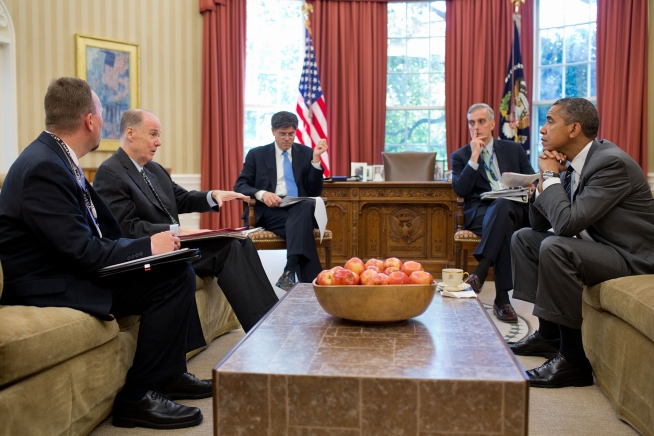US policy towards Syria is struggling to find its footing over worries about the disorganized, largely jihadist rebel opposition and what might come next if the US decides to more firmly side with them.
 The attack on the US consulate in Libya, which killed four Americans and which the US believes was the work of al-Qaeda, is a reminder of what kind of unintended consequences can occur when the US works with disparate rebel militias with at least some ties to terrorist jihadist groups.
The attack on the US consulate in Libya, which killed four Americans and which the US believes was the work of al-Qaeda, is a reminder of what kind of unintended consequences can occur when the US works with disparate rebel militias with at least some ties to terrorist jihadist groups.
The rebel opposition to Syrian President Bashar al-Assad is even less organized than the Libyan rebels were and have even more substantial ties to al-Qaeda. The Obama administration has chosen to support Syria’s rebels, despite the war crimes they’ve committed and their nefarious ties to jihadists, by sending non-lethal aid and facilitating the delivery of weapons from Gulf allies like Saudi Arabia and Qatar.
“This is not a situation where the US can do much to shape what happens,” says Mona Yacoubian, a former State Department official and now fellow at the Stimson Centre. “There has always been a lot of caution within the Obama Administration on Syria and if anything things are getting more complicated.”
It’s true the Obama administration has demonstrated caution by not intervening militarily and refusing to send weapons directly to the rebel fighters, but caution doesn’t fairly describe the current policy of officially aiding rebels tied to al-Qaeda and who have committed serious crimes on the ground.
The presence of al-Qaeda fighters and other affiliate jihadist groups among Syria’s rebel opposition has been understood, even by US officials, practically from the beginning. One US intelligence estimate found as many as a quarter of the 300 different rebel groups in Syria may be fighting under the banner of al-Qaeda, according toRep. Mike Rogers (R-MI), chairman of the House Intelligence Committee. Other estimates say up to half are devoted jihadists.
But the US is still desperately looking for a way to capitalize on the chaos in Syria, which is strategically located and which planners would are eager to influence, thereby eliminating one of Iran’s closest allies.
“We badly need to identify some political and military leaders who can make clear that they seek a political settlement to bring all fighting to an end,” one Western official on condition of anonymity told Reuters. “Without that the blood letting reinforces the worst aspects of sectarianism and makes a soft landing ever less likely.”
As things are now, the Obama administration runs the risk of helping to bring these extremists to power if and when the Assad regime finally does collapse. Moreover, as happened in Afghanistan after the US proxy war there with the mujihadeens, the potential for deadly blowback is very real.


